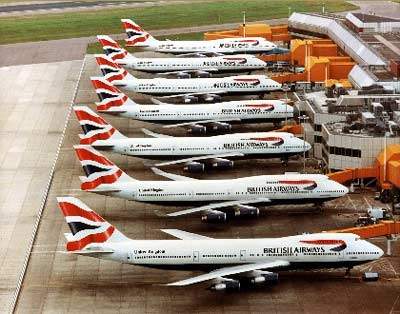Says Time Savings Could Result In Millions Of Dollars
Saved
A new project which could help slash airport delays by reducing
snarl-ups in the chain of operations that prepare an aircraft for
its next flight is being launched by Cambridge University.

University officials tell ANN the initiative will trial the
latest automated identification technology -- including tiny RFID
electronic tags, that feed information back to computers -- to
examine how it could be used to speed up airport operations by
making equipment and processes more visible. Researchers believe it
could lead to "dramatic improvements" at airports around the
world.
Earlier research carried out by the University’s Institute
for Manufacturing shows that the use of Auto-ID Technology and
better data-sharing between airlines, ground-handlers, fuelers and
caterers could cut delays in aircraft turnaround times by 25%. At
the UK’s 10 biggest airports alone, that would generate
annual airline savings of £160 million, and perhaps even more
importantly reduce pressure on overstretched airport
facilities.
"The project will explore how key parties involved in airport
operations, such as airport authorities, airlines, ground handlers,
maintenance organizations, fuelers and caterers can work together
seamlessly and effectively," said Professor Duncan McFarlane, from
the Institute for Manufacturing. "The way these parties share
information will be examined, allowing them to recognize and share
problems quickly and work together to minimize or resolve airport
delays as they occur."
The rising volumes of air traffic in recent years, as well as
escalating fuel prices and tighter security controls have made
airports increasingly vulnerable to system-wide breakdowns. The
result can be delayed flights, long queues, lost baggage and wasted
time, as well as rising costs for the companies involved.
Many of these delays occur as a result of bottlenecks in the
sequence of activities that takes place between consecutive
flights, such as baggage handling, refueling, maintenance tasks and
passenger transfer. Because the companies carrying out these tasks
don’t always share information, a breakdown somewhere along
the line can cause a system-wide snarl-up.
 Over the last few years, in a range
of different initiatives, airports have tested different types of
Auto-ID technology which could potentially track different items.
Until now, however, the technology has never been used on an
airport-wide basis to speed up aircraft turnaround. This will be
the focus of the Cambridge project.
Over the last few years, in a range
of different initiatives, airports have tested different types of
Auto-ID technology which could potentially track different items.
Until now, however, the technology has never been used on an
airport-wide basis to speed up aircraft turnaround. This will be
the focus of the Cambridge project.
The researchers plan to test the use of Radio-Frequency
Identification (RFID) tags to provide visibility of different
assets used in airport operations, such as ground equipment. The
tiny electronic chips would be fitted to items like boarding
passes, bags, baggage containers and catering trolleys. They would
then feed back information to computers used by the different
service teams on the ground, alerting them to problems and keeping
them up-to-date with the plane preparation progress.
"The need for more efficient airports is at an all-time high,"
McFarlane added. "While we can’t put an end to flight delays,
we could be taking measures to ensure that delays are dealt with
effectively and guarantee that planes are ready for their next
flight sooner."
 Sierra Space Repositions Dream Chaser for First Mission
Sierra Space Repositions Dream Chaser for First Mission ANN's Daily Aero-Term (05.10.24): Takeoff Roll
ANN's Daily Aero-Term (05.10.24): Takeoff Roll Aero-News: Quote of the Day (05.10.24)
Aero-News: Quote of the Day (05.10.24) Aero-News: Quote of the Day (05.11.24)
Aero-News: Quote of the Day (05.11.24) ANN's Daily Aero-Term (05.11.24): IDENT Feature
ANN's Daily Aero-Term (05.11.24): IDENT Feature




